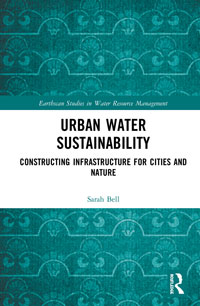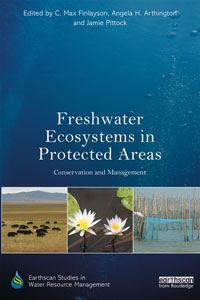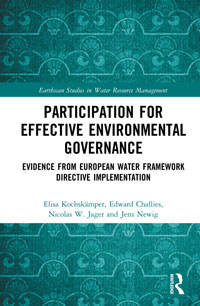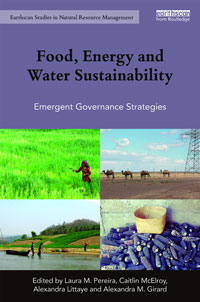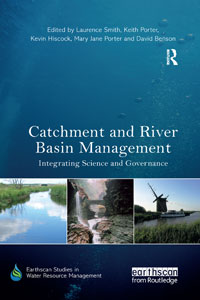Now Available
Urban Water Sustainability: Constructing Infrastructure for Cities and Nature
By Sarah Bell
The provision of a safe and reliable water supply is a major challenge for the world’s growing urban populations. This book investigates the implications of different developments in water technology and infrastructure for urban sustainability and the relationship between cities and nature.
The book begins by outlining five frameworks for analysing water technologies and systems – sustainable development, ecological modernisation, socio-technical systems, political ecology and radical ecology. It then analyses in detail what the sustainability implications are of different technical developments in water systems, specifically: demand management, sanitation, urban drainage, water reuse and desalination. The main purpose of the book is to draw out the social, political and ethical implications of technical changes that are occurring in urban water systems around the world, with positive and negative impacts on sustainability.
Freshwater Ecosystems in Protected Areas: Conservation and Management
Edited by C. Max Finlayson, Angela H. Arthington, Jamie Pittock
Freshwater ecosystems have the greatest species diversity per unit area and many endangered species. This book shows that, rather than being a marginal part of terrestrial protected area management, freshwater conservation is central to sustaining biodiversity. It focuses on better practices for conserving inland aquatic ecosystems in protected areas, including rivers, wetlands, peatlands, other freshwater and brackish ecosystems, and estuaries.
The authors define inland aquatic ecosystems, showing just how diverse and widespread they are. They examine the principles and processes that are essential for the conservation of freshwater ecosystems and aquatic species. Major categories of threats to freshwater ecosystems and the flow-on implications for protected area design are described.
